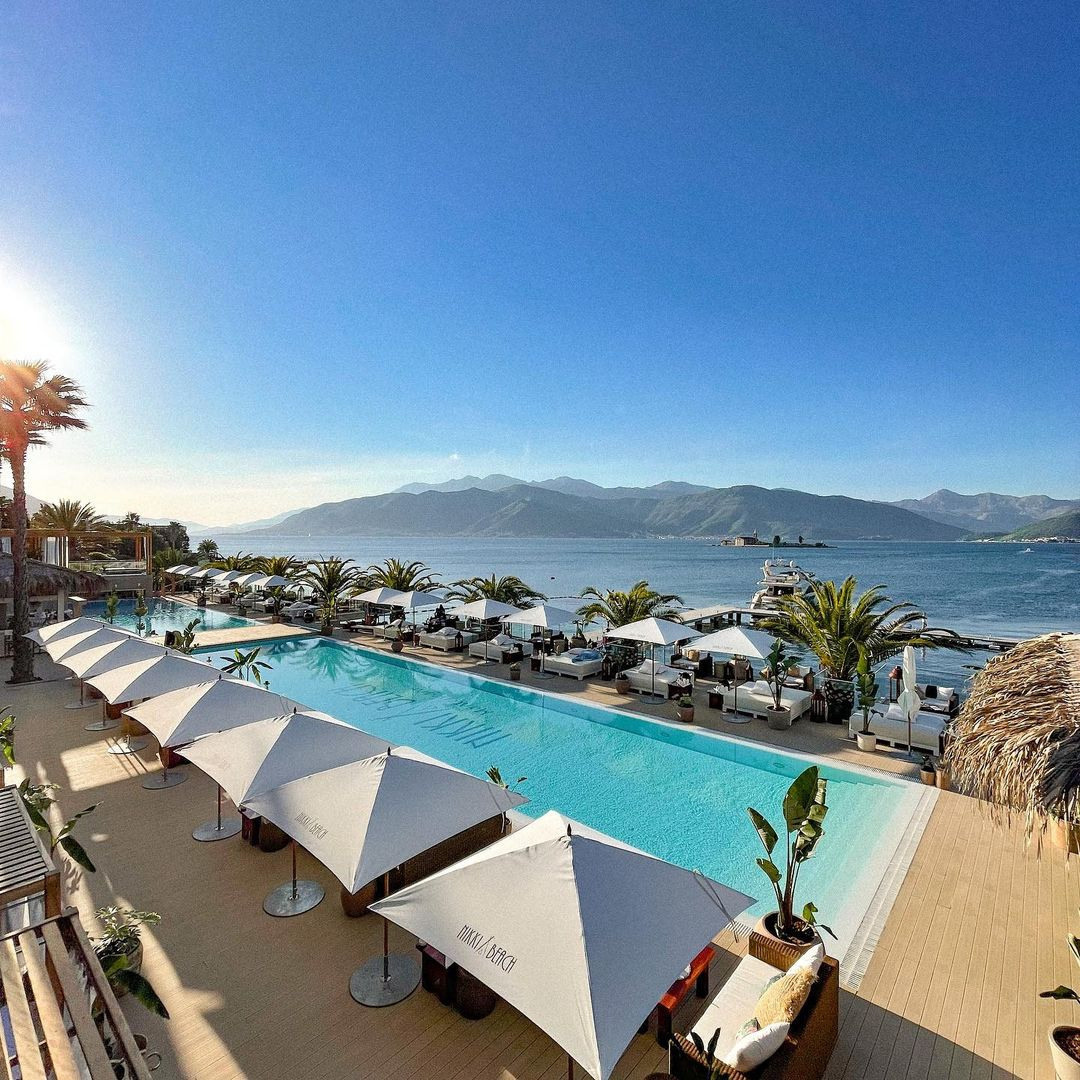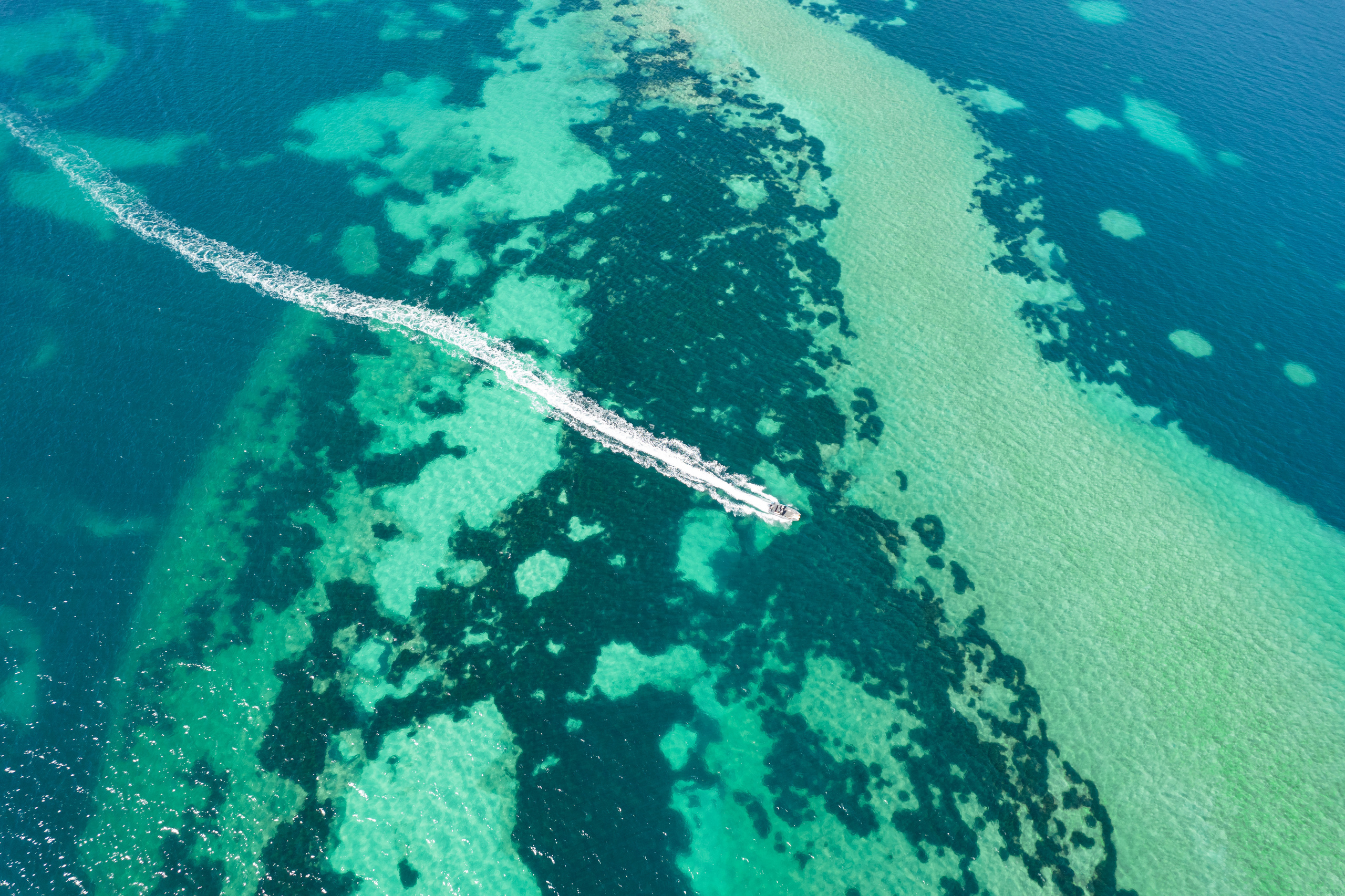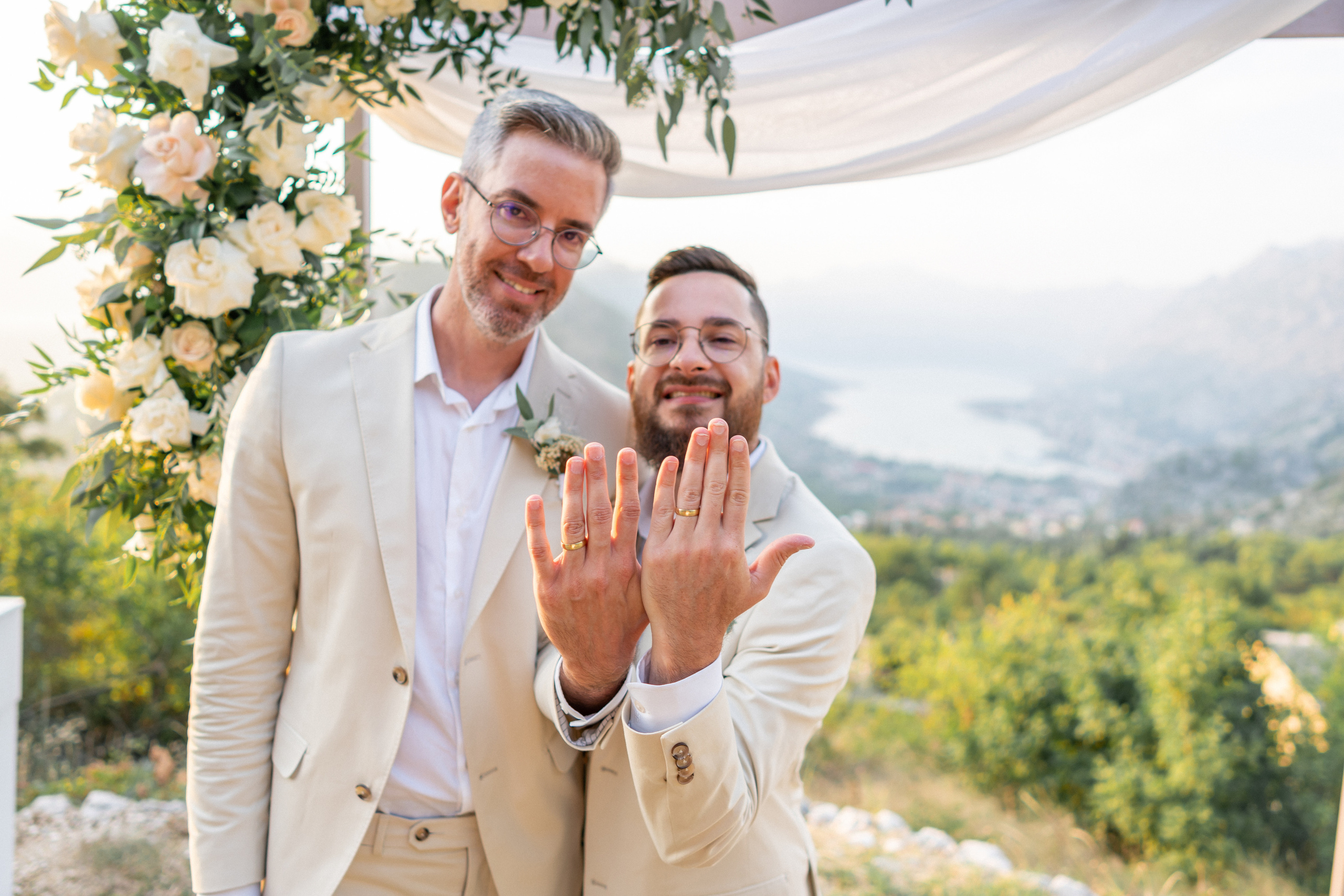Last Updates 2025
At the end of 2025, the Government of Montenegro adopted a number of amendments to the Law on Foreigners. The main ones include:
— temporary residence based on property ownership, available only if the property value is at least €150,000;
— a new condition for company directors when extending a temporary residence permit, which is required in order to later obtain permanent residence: a mandatory payment of at least €5,000 in taxes per year (the calculation method is still being clarified).
We are currently waiting for the adoption of the relevant by-laws.
The original text of the law is available at the link:
zakoni.skupstina.me/zakoni/web/dokumenta/zakoni-i-drugi-akti/650/3813-23 296-24-3-25-1-22.pdf
Introduction
Montenegro, nestled in the heart of the Balkans, boasts not only stunning landscapes but also a welcoming environment for immigrants seeking a new place to call home. With its population of around 620,000 and a democratic governance system, Montenegro offers a promising atmosphere for individuals looking to settle and invest. In this guide, we delve into the process of obtaining a residence permit in Montenegro, exploring its various facets and why it’s considered an appealing option for immigration.
Residence Permits in Montenegro — Boravak
In Montenegro, a residence permit, known as “Boravak” serves as an essential document for non-citizens residing in the country. It contains pertinent information from your passport, including your personal identification number (JMBG ili matični broj), which is equivalent to a tax identification number (TIN) and is assigned upon registration in the police immigration system during residence permit processing. This number is required for various administrative purposes, such as banking transactions. Additionally, Boravak specifies the individual’s legal status and duration of stay, serving as proof of legal residency.
It’s normal to be asked for documents if stopped on the street, which we have encountered several times. There’s nothing to worry about; simply present your documents or photos of the documents, and you’re all set. Foreigners in Montenegro are required to carry their passport and Boravak for identification purposes, though carrying copies/photos may suffice in certain situations to safeguard original documents.

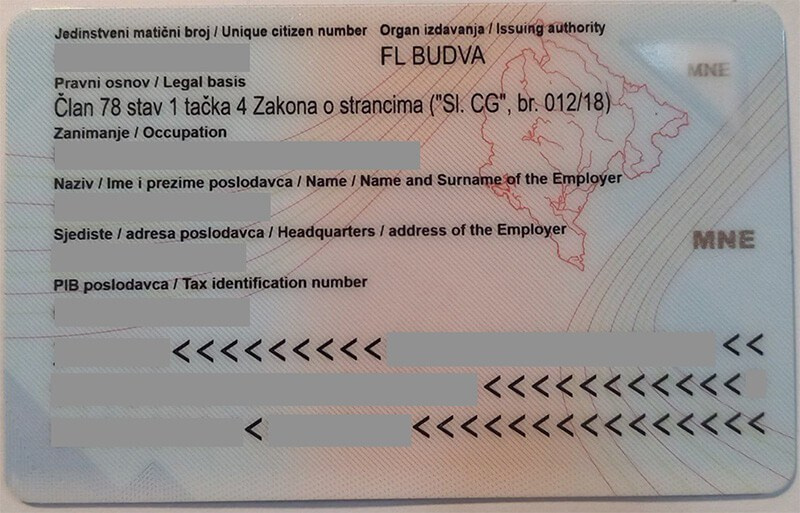
13 Grounds for Obtaining Residence Permits:
Montenegrin law outlines 13 grounds for obtaining residence permits, known as “Boravak, ” catering to diverse needs and circumstances. These include:
- Family Reunification: Residence permits may be granted to individuals intending to reside in Montenegro for more than 90 days to reunite with family members.
- Education: Residence permits are available for individuals pursuing educational opportunities in Montenegro.
- Participation in International Student Exchange Programs or Other Youth Programs: Students participating in international exchange programs or similar youth programs are eligible for residence permits.
- Specialization, Professional Training, or Practical Training of Foreigners: Individuals seeking specialized training or practical experience in Montenegro can obtain residence permits.
- Scientific Research Work: Researchers conducting scientific research in Montenegro may be granted residence permits.
- Medical Treatment: Residence permits may be issued to individuals seeking medical treatment in Montenegro.
- Humanitarian Reasons: Residence permits can be granted for humanitarian purposes.
- Use and Disposal of the Right to Immovable Property Owned in Montenegro: Individuals owning property in Montenegro may obtain residence permits.
- Performing Religious Service: Religious workers may obtain residence permits for their activities.
- Performing Voluntary Work within the European Voluntary Service: Individuals engaged in voluntary work within the European Voluntary Service may be granted residence permits.
- Residence of Stateless Persons: Stateless individuals are eligible for residence permits.
- Employment: Residence permits are available for individuals employed in Montenegro.
- Residence of Digital Nomads: Montenegro offers residence permits for digital nomads.
Other Cases in Accordance with the Law and International Agreements: Residence permits may be granted in other cases as stipulated by law and international agreements.
Advantages of Residence Permits in Montenegro:
Obtaining a residence permit in Montenegro offers numerous advantages to individuals, providing them with a pathway to residency, employment, and potential citizenship. The temporary residence permit in Montenegro grants individuals the following benefits:
- Residency without the need for exiting the country during its validity period.
- Free education in schools.
- Annual temporary residence permits obtained through employment entitle holders and their family members to free use of the state medical insurance system (clinics, hospitals).
- Exemption from paying tourist tax for the duration of stay.
- Opportunity to exchange foreign driver’s licenses for Montenegrin ones valid for 10 years.
- Facilitation of visa applications for third countries, including Schengen visas.
- Ability to open a bank account in Montenegrin banks. This has become particularly relevant as, recently, banks have stopped opening accounts for foreigners without residency permits. Additionally, it is extremely difficult to open an international account for receiving payments from abroad; most likely, only domestic accounts will be opened. However, if you are conducting business, opening an international account for the company should not pose any problems.
Moreover, residence permits require annual renewal, contingent upon meeting the prescribed legal conditions, primarily adherence to permissible periods of absence. After five years of continuous residence, individuals holding certain types of residence permits may apply for permanent residence permits (stalni boravak).

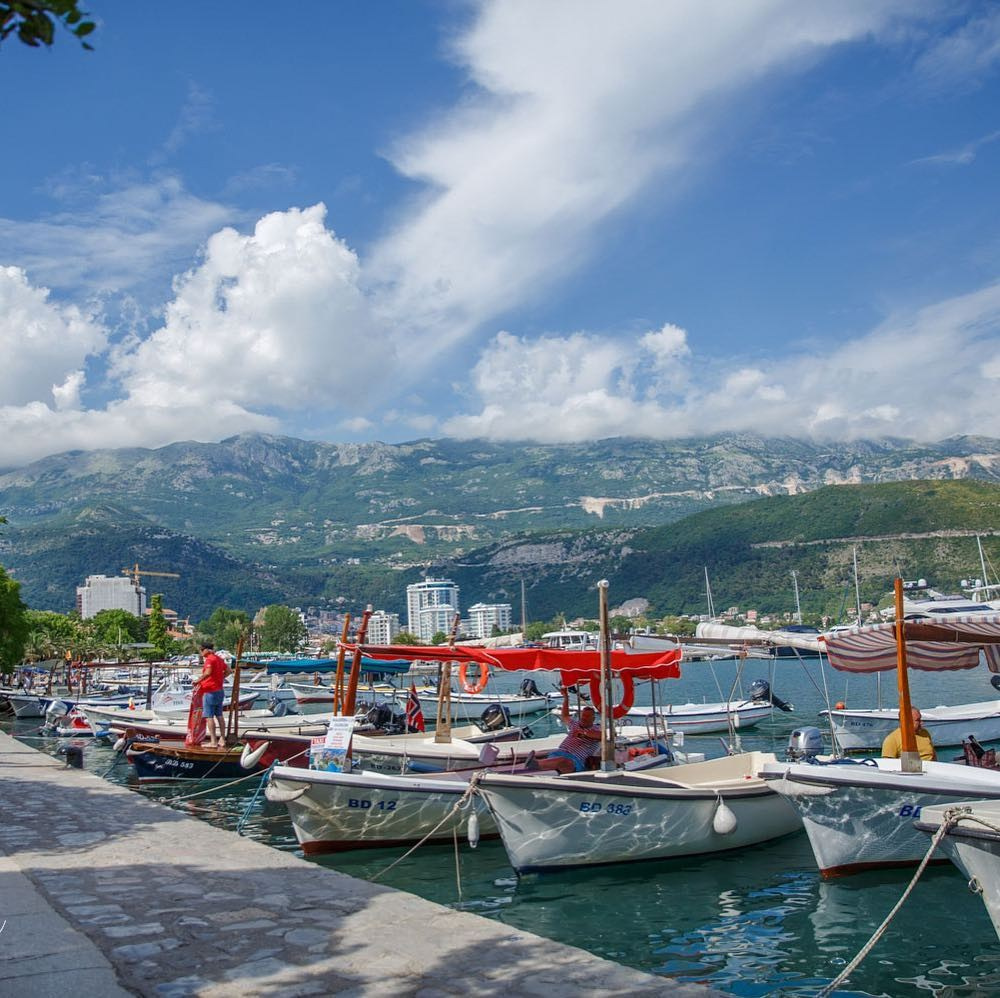

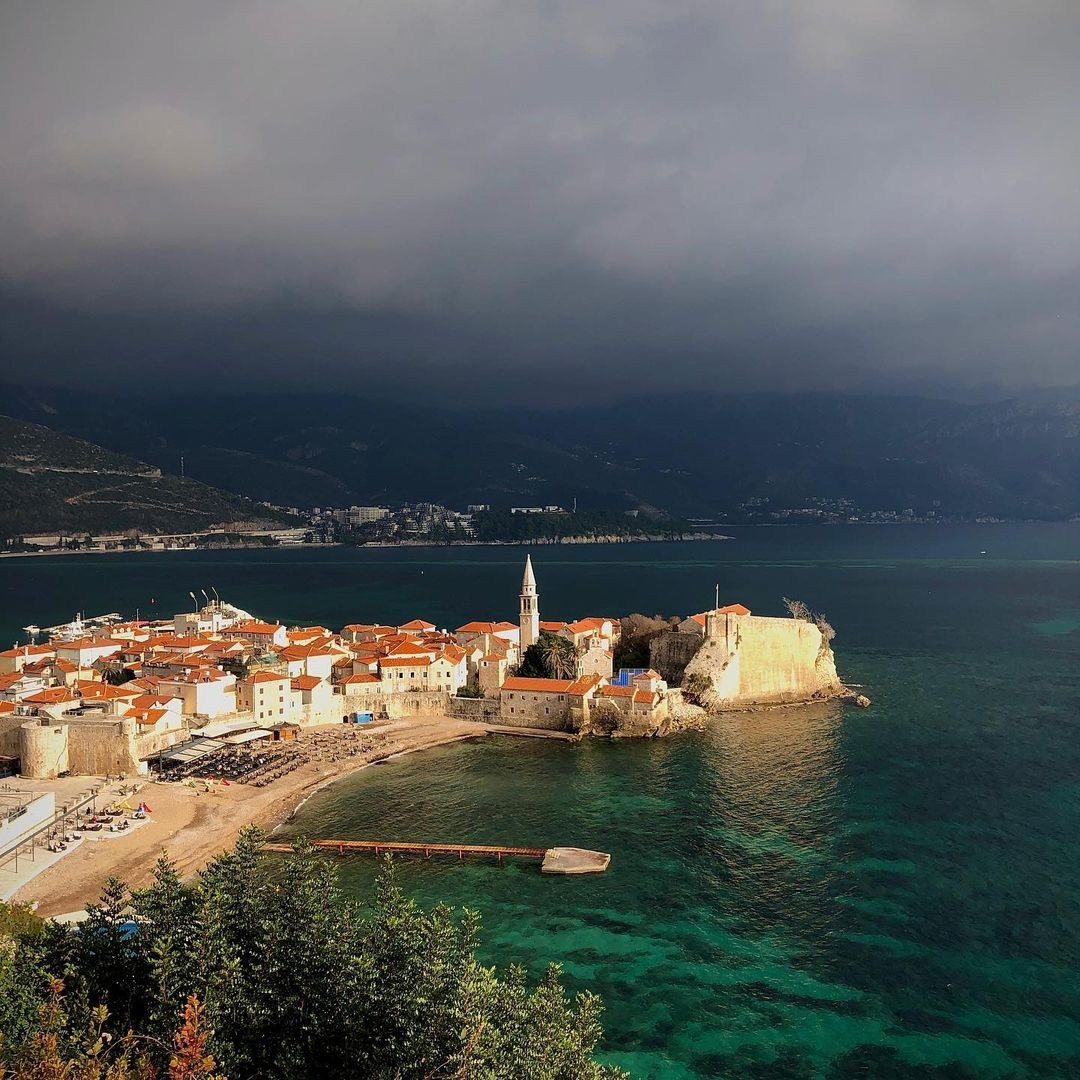
Limitations with Residence Permits:
While residence permits offer numerous benefits, they also come with certain limitations that applicants need to be aware of to make informed decisions regarding their residency status. Non-compliance with the requirements regarding the duration of absence from Montenegro can affect the possibility of extending temporary residency and subsequent obtaining of permanent residency.
For individuals holding valid annual residence permits, the following regulations regarding the duration of absence from Montenegro apply:
- Absence for up to 1 month without valid reasons.
- Absence for up to 3 months with a valid reason, subject to mandatory notification of the police according to the established procedure.
Exceptions to these rules are made for executive directors of companies, who may be absent for more than 30 days. However, for obtaining permanent residency within 5 years, the cumulative absence should not exceed 10 months.
It is essential to understand that violation of the duration of absence requirements can impact the extension of temporary residency and the acquisition of permanent residency. Further, we will delve into the main types of residence permits listed above.
Work-Based Residence Permits:
Getting a job in Montenegro is the most common way for foreigners to live here legally. There are two main ways to get a residence permit through work: either by setting up your own business or by working for an employer. More details on the types of jobs, conditions, and salaries can be found in the provided information.
This option has specific requirements and steps to follow, all aimed at making sure everything is done according to Montenegrin work laws and rules.
Employment with an Employer:
Getting a job in Montenegro is a common way for foreigners to live here legally.
Advantages:
- You don’t need to set up your own company.
Disadvantages:
- You and your family can’t apply for permanent residency.
- If you lose your job, you might have to leave Montenegro.
- Canceling your permit means you have to leave Montenegro.
- There might be limits on how many foreign workers a company can hire.
- Usually, you have to pay for your residence permit and work permit.
- It can be tricky to make sure your employer pays taxes and social contributions for you.
- You can’t extend your permit if you change jobs.
- Employees can’t apply for permanent residency.
How to Get a Work Permit:
- Your employer needs to offer you a job and provide proof.
- You need to show your education and qualifications.
- You need to prove you’re in good health.
Important Things to Know:
- If you’re over 67, you might still get a permit to work.
- You can’t get a permit if the company offering you a job has broken the law before.
- If the company goes bankrupt, you might not get your permit.
- Your employer has to register you for social security.
- If you don’t start working when you should, your permit might be canceled.
Therefore, if you plan to obtain permanent residency in Montenegro, it makes sense to consider opening your own company in the country.
Establishing Your Own Company in Montenegro:
Entrepreneurs and investors looking to establish businesses in Montenegro can pursue opening their own company as a means to gain residency and potentially citizenship. This pathway stimulates economic development and encourages innovation within the local market.
Key Points to Consider:
Process of Establishing Your Own Company:
- Opening your own company involves registering a legal entity in Montenegro, followed by employment in your own individual enterprise (Sole Proprietorship) or company as an executive director.
- Employment serves as the basis for obtaining temporary residency.
- The process of obtaining temporary residency typically involves:
- Registering the company/Sole Proprietorship
- Submitting residency permit documents
- Opening bank accounts
- Employment
- Registering with tax authorities and social security funds
- Arranging state health insurance
- Being the founder of a company is not grounds for obtaining residency.
Status of Company Founder:
Advantages of Establishing Your Own Company:
- Executive directors/Sole Proprietors and their families are eligible for permanent residency.
- Executive directors/Sole Proprietors are not subject to quotas.
- Independence from an employer.
- Confidence in proper documentation and timely tax and social contributions.
- Ability to employ other family members in the company without additional risks.
- Possibility to register property (real estate, automobiles) under the company’s name.
Disadvantages:
- Initial expenses for opening a legal entity.
- Ongoing expenses for maintaining the legal entity and hiring an accountant.
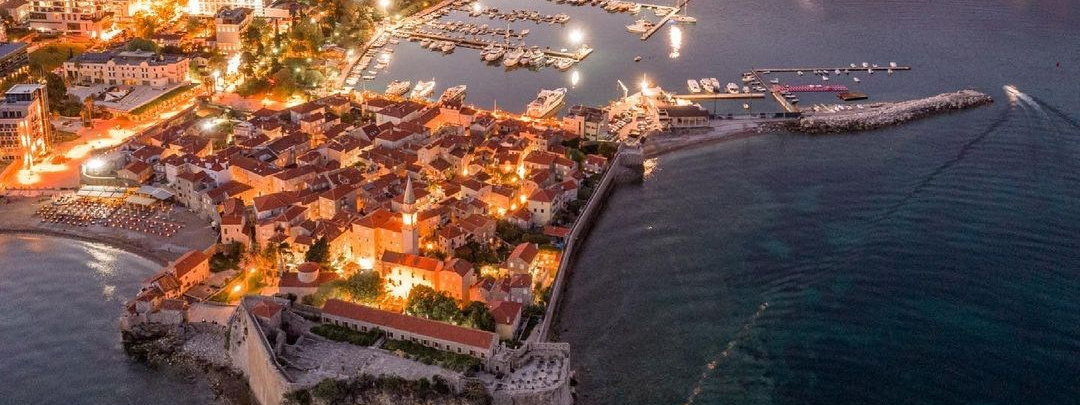
Residence Permit through Real Estate Purchase:
Buying property in Montenegro can get you a residency permit. This option attracts investors and helps the real estate market grow, which is good for the country.
Process of Getting Residency in Montenegro:
The process of obtaining residency in Montenegro can be broken down into three stages:
- Preparation and Document Collection:
- This involves consultations, preparation, and submission of necessary documents, as well as opening personal bank accounts for the applicant.
- Residence Permit Application:
- This entails the submission of documents and obtaining the residence permit at the Immigration Department of the Police.
- Employment/Registration with Tax Authorities/Social Funds/State Health Insurance:
- Personal presence of the foreign citizen is required for opening bank accounts, submitting the residence permit application at the police, and obtaining the work permit. However, there is no requirement for the applicant to stay in Montenegro during the authorities' decision-making period.
Additional Information:
If you own property in Montenegro as a foreigner, you can get a temporary residence permit. You’ll need to prove you own the property with documents like a real estate certificate. This permit is for foreigners who own at least half of the property. The property can be things like houses, vacation homes, apartments, or business spaces.
Residence Permits for Family Members:
Family members of those who already have residence permits can also apply for permits, which helps families stay together.
In Montenegro, if one family member has a yearly residence permit for reasons other than family reunification, their family can also get permits. If someone marries a Montenegrin citizen, they can apply for residency too.
For children born to foreign parents in Montenegro, residency is based on one of the parent’s permits. However, being born in Montenegro doesn’t automatically make them Montenegrin citizens. Montenegrin citizenship is only given to children if one of their parents is a citizen. Only immediate family members can apply for residence permits, like spouses and children under 18, including adopted and stepchildren. Other relatives might be considered in special cases, depending on humanitarian or personal reasons.
Requirements and Process of Obtaining Residence Permits:
Prospective applicants must meet specific requirements and submit necessary documents to apply for residence permits. The application procedures, processing times, and potential restrictions are outlined to guide individuals through the process.
Standard Document Set:
- Valid identification (passport).
- Marriage certificate.
- Birth certificate (for children).
- Consent of the second parent for a child’s prolonged stay in Montenegro (if only one parent is present).
- Police clearance certificate (for all applicants over 16 years old), issued no earlier than 6 months before applying for the residence permit.
- Proof of residence in Montenegro (property ownership certificate, lease agreement, etc.).
- Migration registration.
- Proof of financial means (salary certificate, bank statement, etc.).
- Educational certificate/diploma (if employed).
- Valid national Montenegrin visa (if applicable).
- Any other documents depending on the applicant’s situation and the type of residence permit.
All foreign language documents must be translated into Montenegrin by licensed translators in Montenegro
Financial Requirements:
To obtain residency in Montenegro, applicants must meet specific financial criteria, which vary depending on the category of residency permit sought. These criteria play a crucial role in ensuring applicants' financial stability and contribute to the country’s economic growth.
For individuals seeking residency through employment, Montenegrin labor laws stipulate a minimum income threshold of €600 per month. This requirement ensures that foreign workers receive wages in line with local standards to prevent exploitation and ensure equality in the labor market. Employers must provide evidence of adequate compensation when sponsoring foreign employees for residency permits, ensuring that workers can financially support themselves during their stay in Montenegro.
Investors aiming to obtain residency through business immigration must also demonstrate financial stability. While there is no specific minimum investment amount, investors are required to make a substantial financial commitment to the country. The exact investment requirements depend on the nature and scale of the business project, with new company formations typically requiring a minimum capital investment.
In addition to income and investment criteria, applicants may also be required to show proof of financial means to support themselves and their families. For example, during the initial application for residency, authorities may request a bank statement showing a balance of at least €20 per day for the duration of one year. This requirement amounts to €7,300 in savings, ensuring that applicants have the financial resources to cover their living expenses in Montenegro.
In addition to these financial requirements, applicants must also consider associated costs with these residency permits in Montenegro. Application fees typically range from €100 to €500, depending on the type of permit sought. Legal and administrative costs vary but can amount to approximately €1,000 to €3,000. Other expenses may include medical examinations, translation services, and any fees for required documentation, which can collectively range from €500 to €1,000.
While exact figures may vary depending on the type of permit and individual circumstances, applicants should budget for these costs to successfully navigate the application process.
Life after Obtaining Residence Permits:
Once you’ve obtained your residence permit in Montenegro, it’s essential to understand both the privileges and responsibilities that come with it. These include integrating into local society, accessing education and career opportunities, and contributing positively to your community. However, it’s crucial to adhere to certain conditions to maintain your residency status.
One key responsibility is fulfilling your tax obligations. If you’re employed or own a business in Montenegro, you’re required to pay taxes promptly and accurately. This ensures compliance with local tax laws and supports the country’s economy.
Another important aspect is adhering to the residency regulations, including the duration of your stay in Montenegro. It’s essential to comply with the permitted absence period and renew your residence permit on time to avoid any disruptions to your residency status.
By fulfilling these conditions, you can enjoy a fulfilling and enriching experience living in Montenegro while contributing positively to the country’s development. Embracing the cultural richness and diversity further enhances your overall lifestyle and integration into the local community.
What Next after Residence Permits? How to Obtain Permanent Residence?
What distinguishes residence permits from permanent residence status?
Residence permits allow foreign nationals to live in Montenegro for a specified period, typically ranging from one to 5 years, while permanent residence status grants long-term residency rights without the need for renewal. Permanent residence permits are initially issued for a period of five years and can be renewed thereafter indefinitely, providing stability and security for individuals seeking to settle permanently in Montenegro.
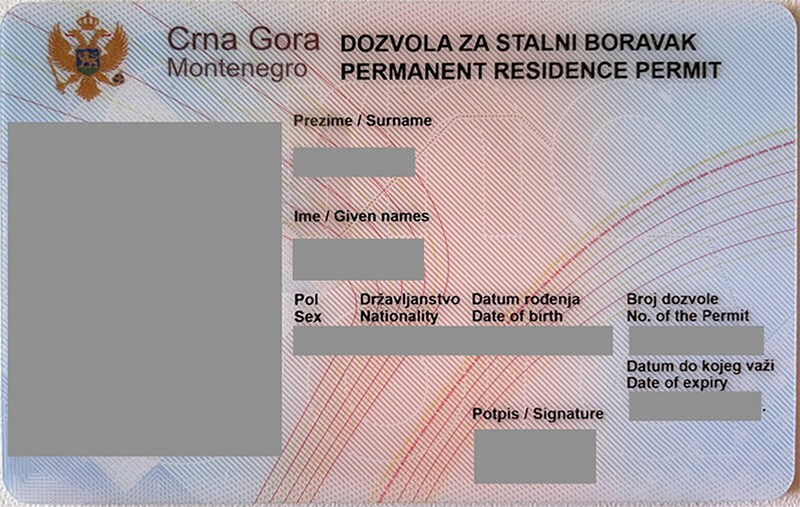
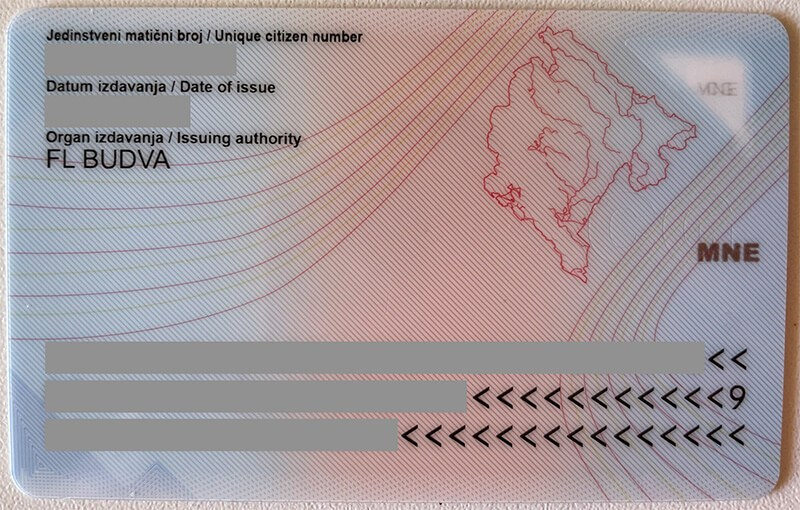
What do I need to get permanent residence in Montenegro?
To qualify for permanent residence, you must have valid travel documents, enough money to support yourself, health insurance, a place to live, and basic knowledge of the Montenegrin language. Plus, you need to have lived in Montenegro legally for five years straight, based on reasons like having a valid temporary residence, being recognized as a refugee, or getting asylum.
What documents are required for obtaining permanent residence?
To obtain permanent residence in Montenegro, the following documents are required as per the law:
- Valid passport or travel document.
- Health insurance.
- Proof of sufficient means of subsistence.
- Proof of accommodation.
- Basic knowledge of the Montenegrin language, demonstrated through a language proficiency test.
Additionally, for children applying for permanent residence:
- Birth certificate.
- Parental consent if one parent is applying on behalf of the child.
These documents are necessary to demonstrate eligibility for permanent residence status in Montenegro, as outlined in the law.
How long can I be absent from Montenegro if I have permanent residence?
Permanent residents can be absent from Montenegro for up to one year without losing their permanent residence status. However, prolonged absence beyond this period may result in the revocation of permanent residence.
Do permanent residents in Montenegro have access to medical care?
Yes, permanent residents are entitled to access medical care in Montenegro.
Can children be granted permanent residence?
Yes, children can get permanent residency in Montenegro under certain conditions:
- If one parent is a Montenegrin citizen and lives in Montenegro when the child is born.
- If both parents have permanent residency when the child is born.
- If one parent has permanent residency when the child is born, and the other parent is either unknown or deceased.
These rules allow children to have permanent residency in Montenegro, giving them legal status and rights in the country.
What rights do foreigners with permanent residence have?
Foreigners with approved permanent residence have the following rights, as stated in the law:
- Employment, job mediation, and unemployment benefits.
- Access to education and professional development.
- Recognition of diplomas and certificates.
- Social assistance, healthcare, and pension insurance.
- Tax benefits as per the law.
- Access to the market of goods and services.
- Freedom of association, joining organizations representing workers' or employers' interests.
These rights are exercised in accordance with the laws governing their implementation.
How long is a permanent residence permit valid for?
A permanent residence permit is valid indefinitely, but it requires renewal every five years.
What conditions must be met to renew a permanent residence permit?
To renew your permanent residence permit in Montenegro, you need to follow these steps:
- Fill out a renewal application form and submit it to the Ministry of Interior Affairs in your area within eight days before your current permit expires.
- Make sure you still have a valid passport or travel document.
- Keep your health insurance up to date.
- Ensure you have enough money to support yourself.
- Make sure you have a place to live.
- Provide any other documents required by the Ministry of Interior Affairs to support your application.
By doing these things, you can renew your permanent residence permit and continue living in Montenegro legally.
Conclusion
Obtaining a residence permit in Montenegro opens doors to new opportunities and experiences for individuals seeking to relocate or invest in the country. However, it’s important to note that Montenegro is a relatively young state, and its immigration laws are subject to frequent revisions, leading to changes in conditions. Consequently, the process of obtaining a residence permit (boravak) can sometimes be challenging. In Montenegro, there are many agencies that specialize in assisting with document collection and submission. Opting for professional assistance can be advantageous, especially for those unfamiliar with the language and local customs, as it simplifies what might otherwise seem like a complex procedure. These agencies offer various services, from consultations to comprehensive packages, providing individuals with the opportunity to save time and avoid unnecessary stress. While these services come at a cost, they can be invaluable in navigating the immigration process smoothly. If you’ve reached the end of this text and are in need of a trusted contact, feel free to reach out via email or WhatsApp, and I can provide you with a recommendation.
Recommendation
If you have more questions than answers and you need professional consultation, I can honestly recommend Julia — for more information on immigration to Montenegro, check out her website.

Pros and cons of immigration to Montenegro
11 Advantages of living in Montenegro and 8 Cons of Moving to Montenegro
Blog
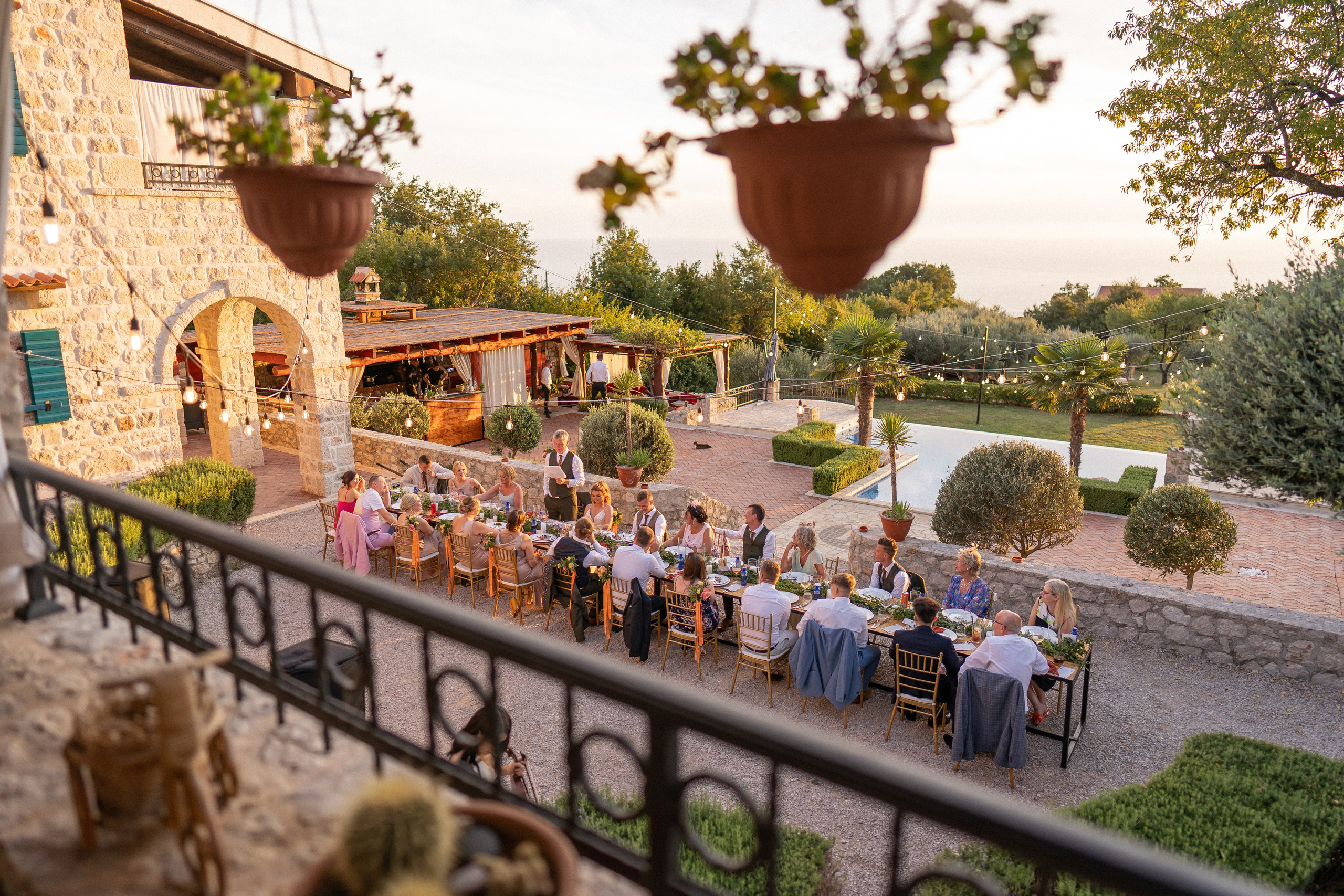
Montenegro Wedding Villa

From Montenegro to Portugal by car

Engagement Photoshoot in Montenegro

Prokletije National Park in Montenegro
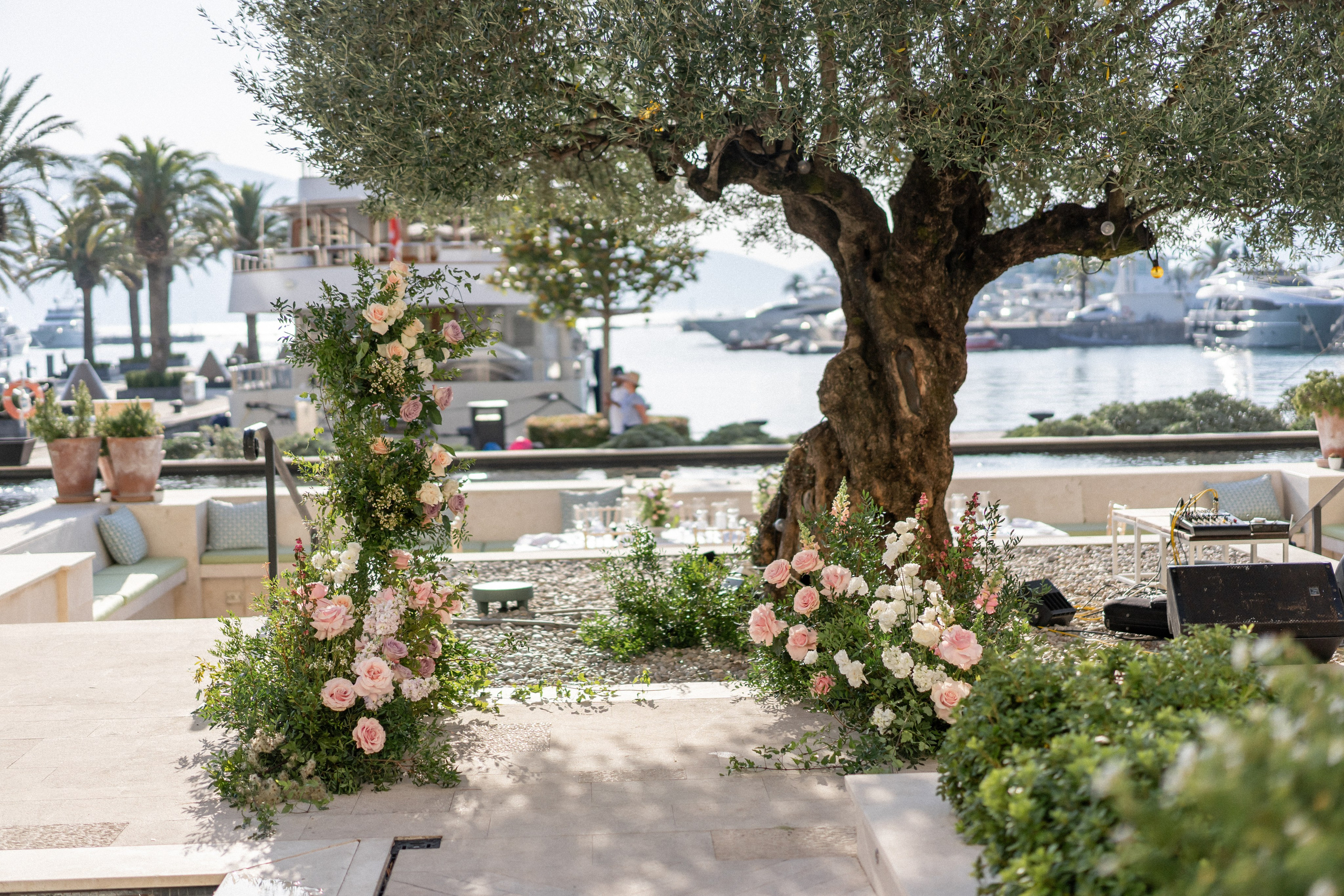
Regent Porto Montenegro Wedding
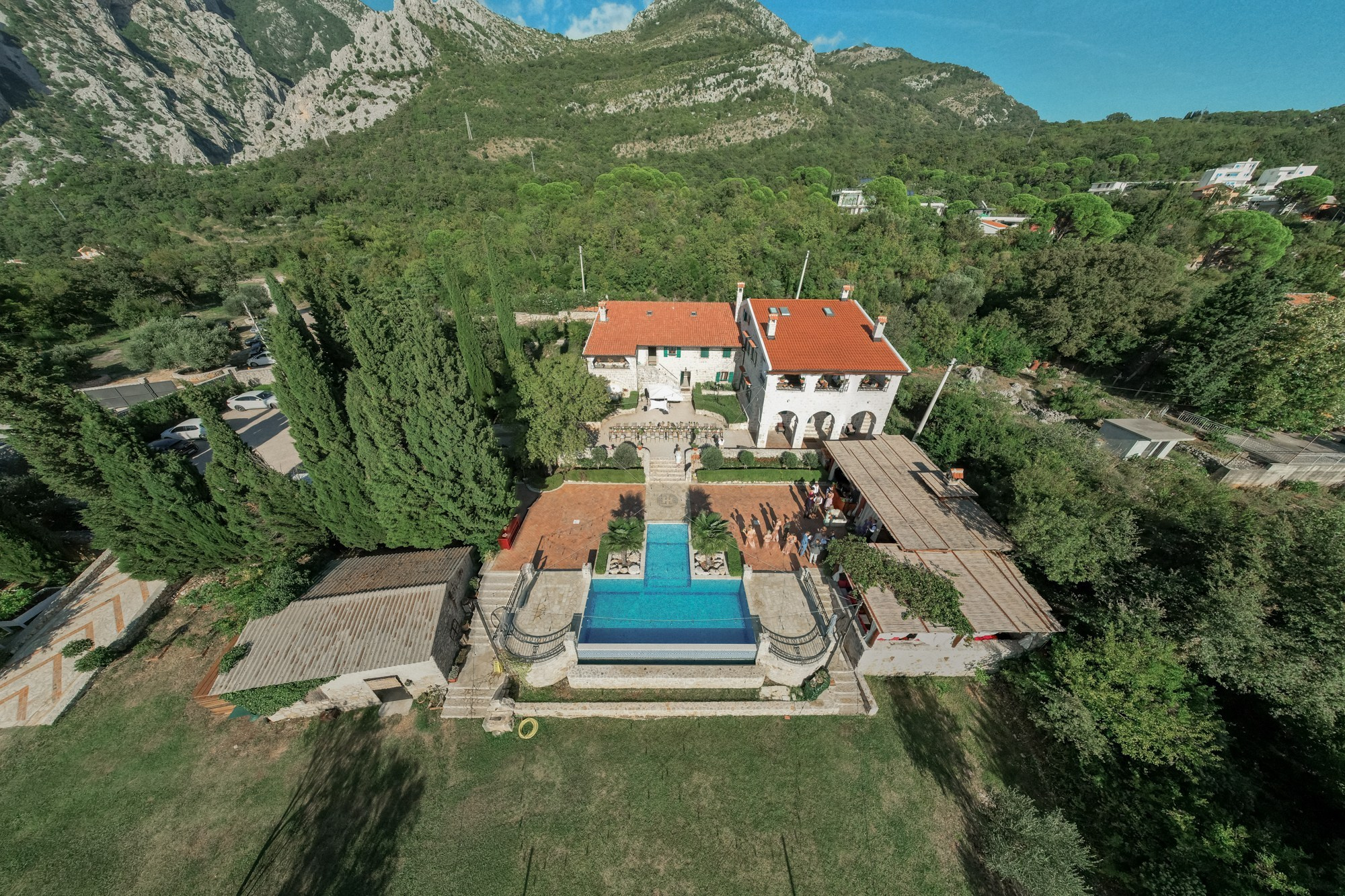
Talici Hill Villa Wedding Venue in Montenegro
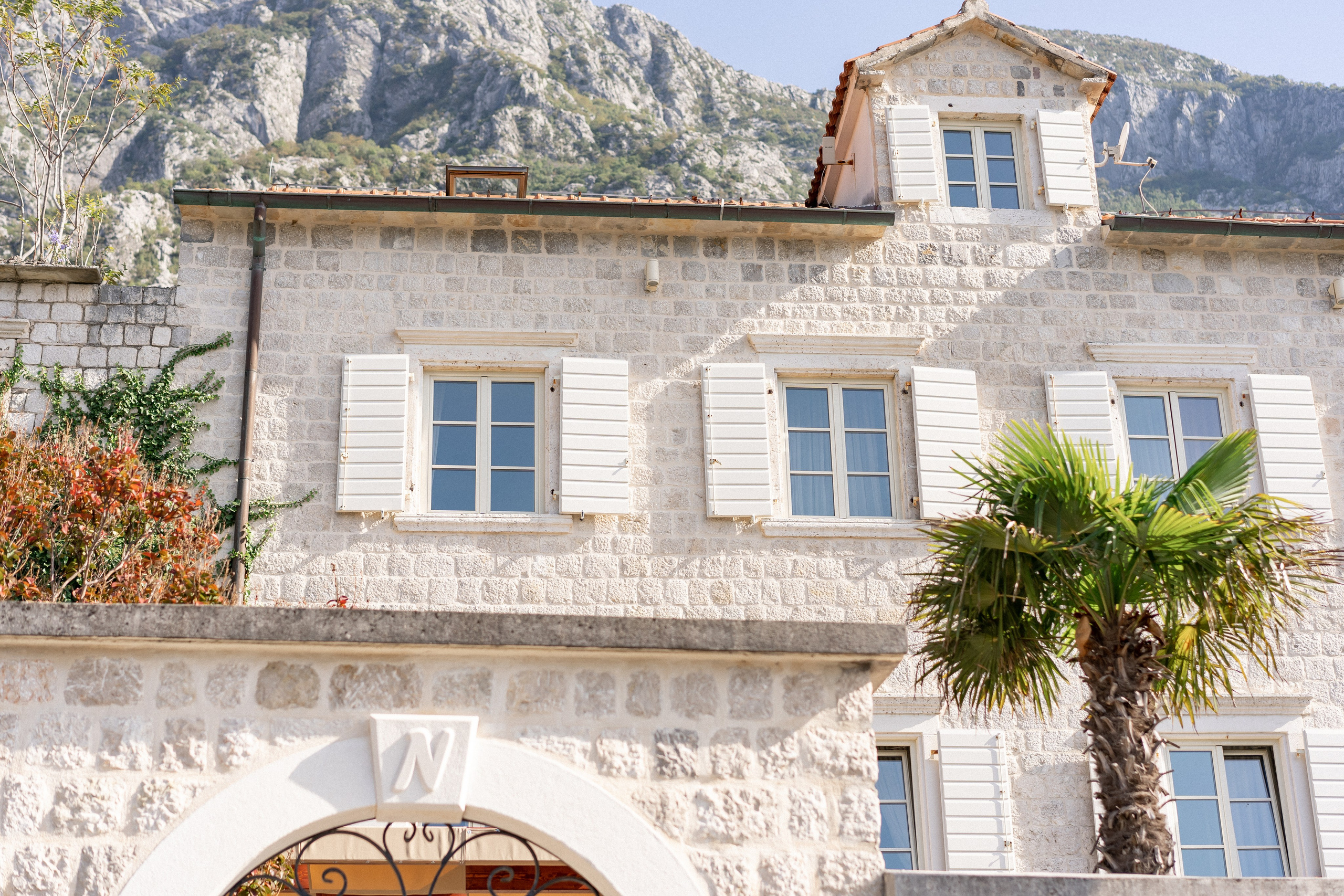
Villa Nikčević Wedding Venue
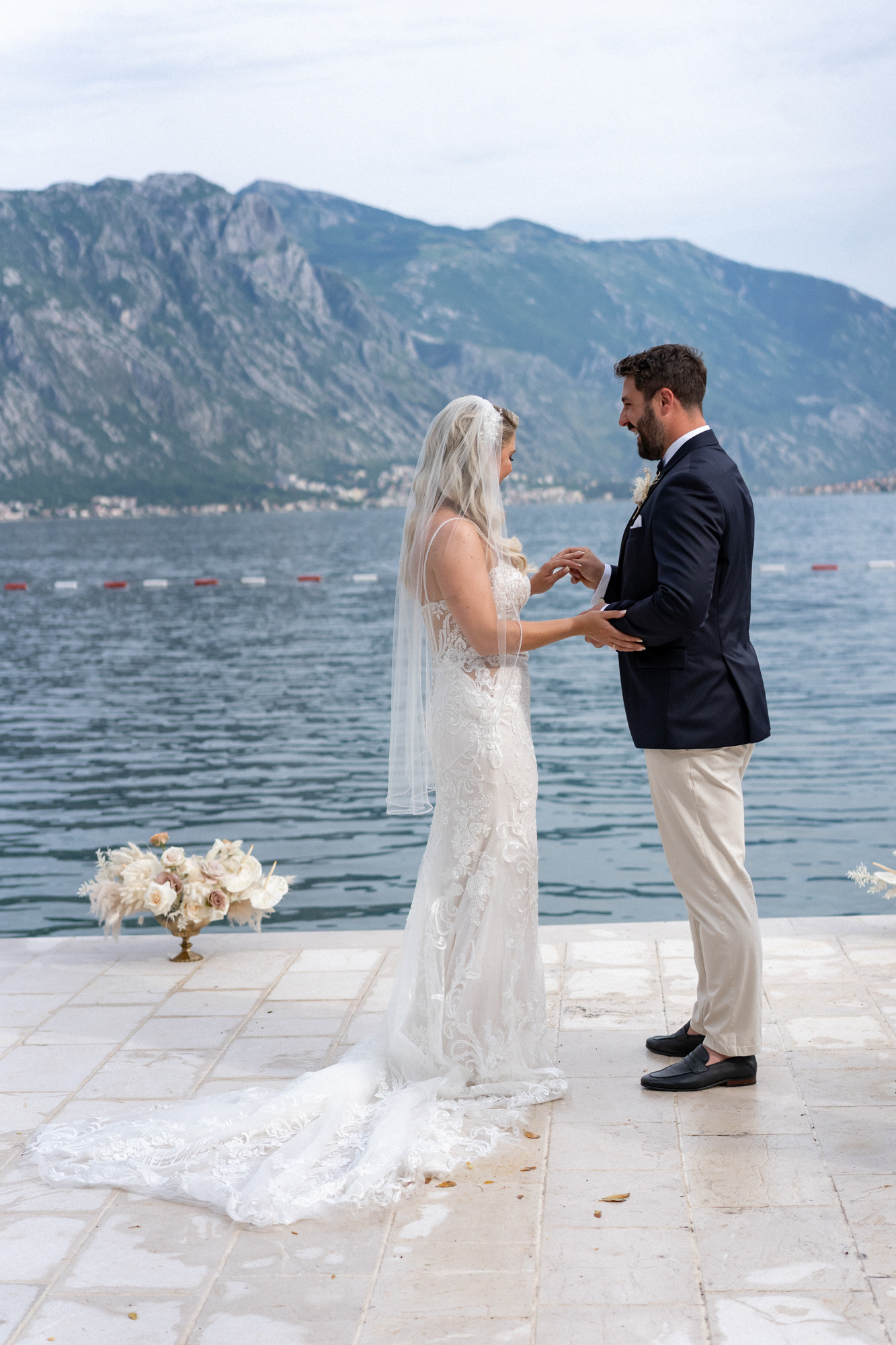
Bajova Kula Beach Club & Restaurant: Montenegro wedding venue
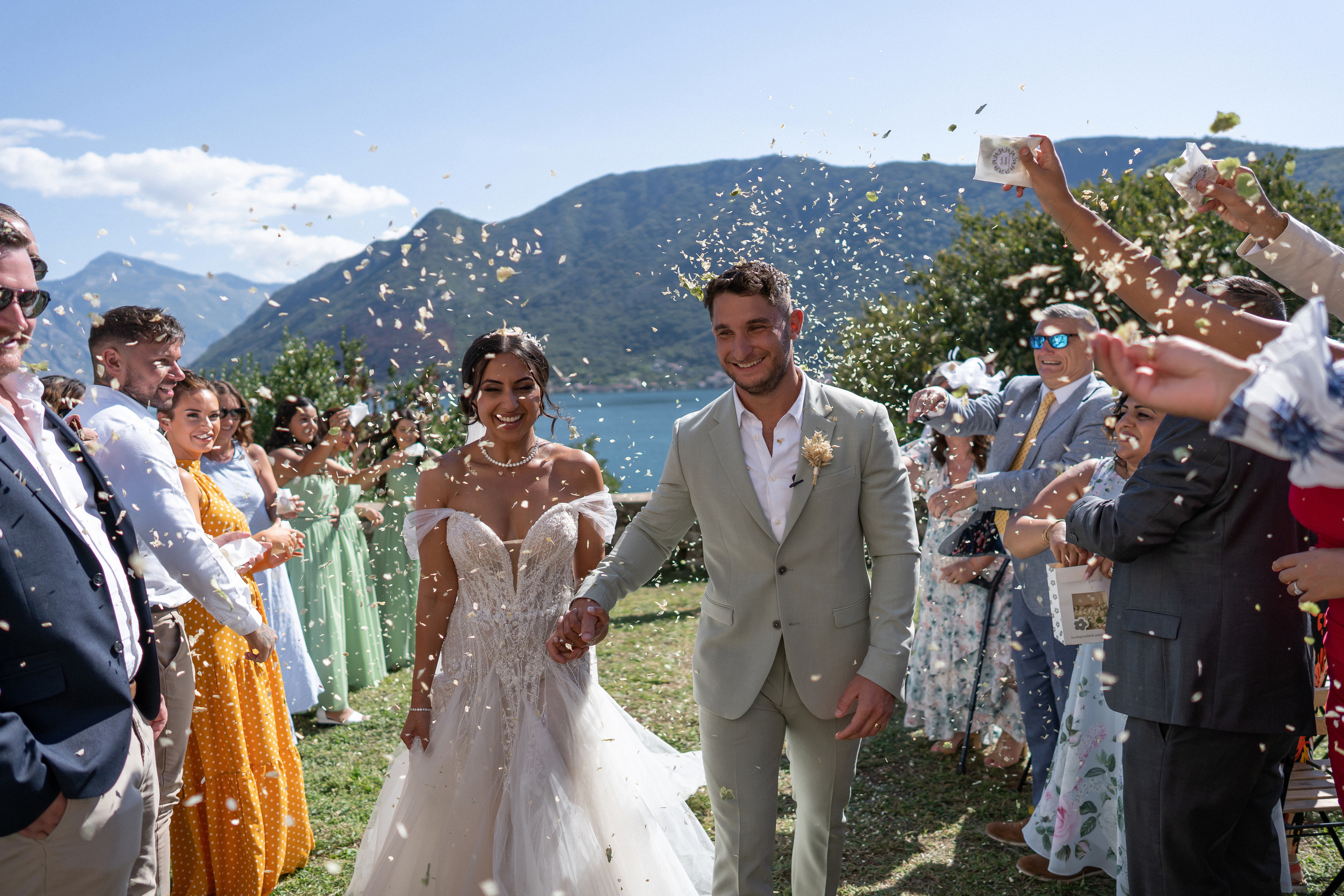
How to Choose a Wedding Planner in Montenegro

Italian vs Montenegro Villa Wedding
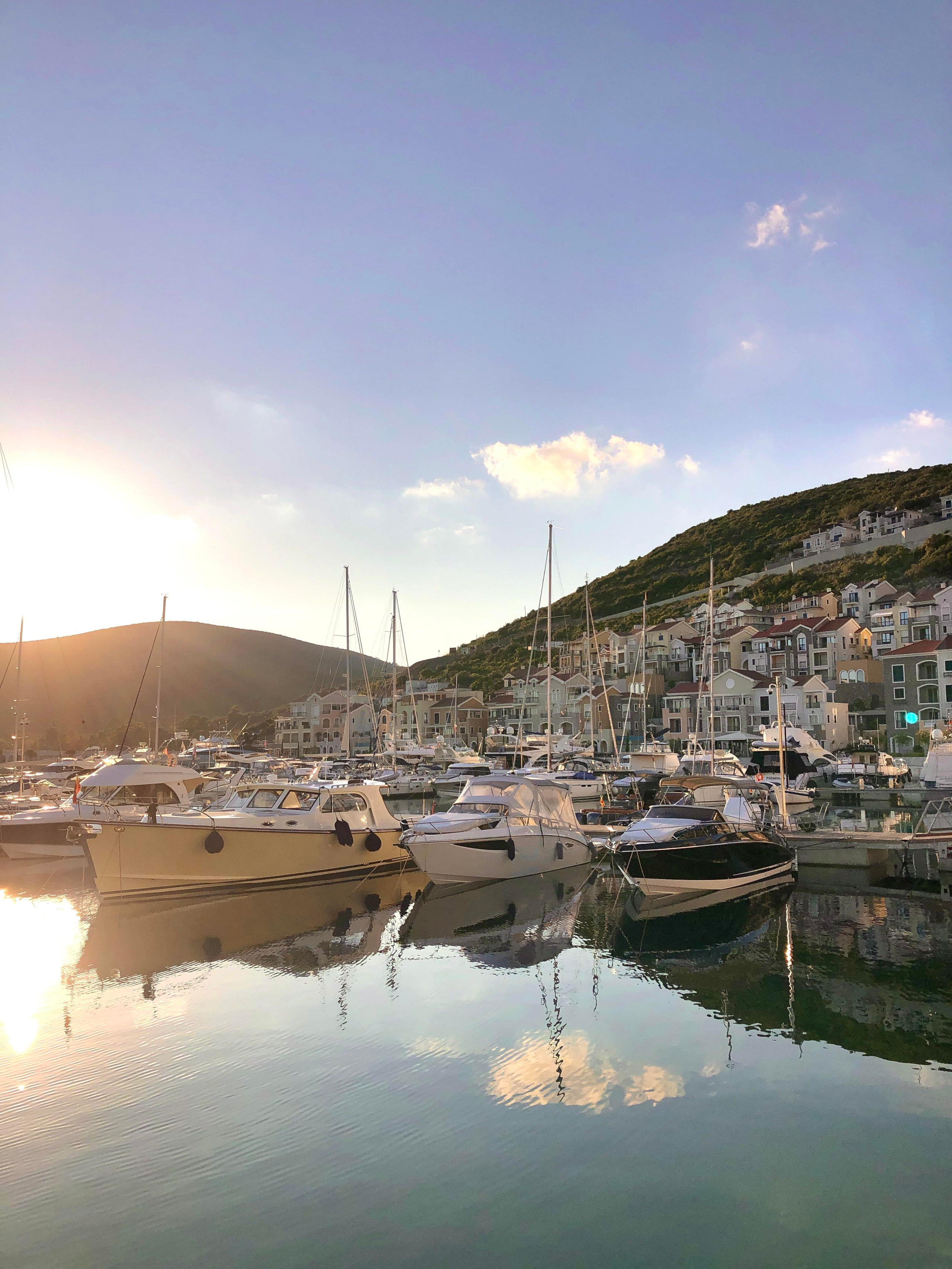
Lustica Bay
